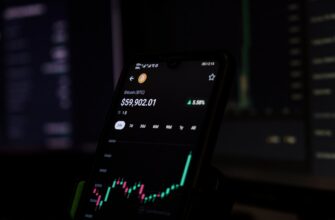- Crypto OTC Desk: The Institutional Gateway to Digital Asset Trading
- What is a Crypto OTC Desk?
- How Crypto OTC Desks Work: Behind the Scenes
- Top 5 Benefits of Using a Crypto OTC Desk
- Who Uses Crypto OTC Desks? Key Players Revealed
- Choosing the Right Crypto OTC Desk: 7 Critical Factors
- Understanding OTC Desk Risks and Mitigation Strategies
- FAQ: Crypto OTC Desks Demystified
- The Evolving Future of Crypto OTC Trading
Crypto OTC Desk: The Institutional Gateway to Digital Asset Trading
While cryptocurrency exchanges dominate retail trading, a hidden powerhouse fuels the movement of billions: the crypto OTC desk. Serving whales, institutions, and high-net-worth investors, these private trading venues offer advantages impossible to find on public order books. This comprehensive guide explores how crypto OTC desks operate, their strategic benefits, and why they’re reshaping large-scale digital asset transactions.
What is a Crypto OTC Desk?
A crypto OTC (Over-the-Counter) desk is a specialized brokerage service facilitating direct, private trades between large buyers and sellers outside traditional exchanges. Unlike public platforms where orders fill via automated matching engines, OTC transactions involve personalized negotiation and settlement, typically for trades exceeding $100,000. Major financial institutions, crypto-native firms, and dedicated brokers operate these desks to serve clients requiring significant liquidity without market disruption.
How Crypto OTC Desks Work: Behind the Scenes
OTC trading follows a streamlined yet personalized process:
- Client Inquiry: A trader contacts the desk specifying asset, quantity, and preferred price range.
- Price Discovery: The desk sources liquidity from its network, analyzing real-time exchange data and dark pools to quote a competitive rate.
- Trade Execution: Upon agreement, parties sign electronic agreements. Assets move via secure wallets, often using escrow services.
- Settlement: Fiat payments settle via wire transfer or stablecoins, typically completing within 24-48 hours.
Top 5 Benefits of Using a Crypto OTC Desk
Institutional traders choose OTC desks for compelling advantages:
- Zero Slippage: Execute massive orders without moving markets or impacting prices.
- Enhanced Privacy: Shield trading strategies from public scrutiny and front-running.
- Personalized Liquidity: Access deep, off-exchange pools for illiquid or large-cap assets.
- Tailored Solutions: Negotiate bespoke terms like structured products or payment timelines.
- Regulatory Compliance: Work with licensed desks for KYC/AML adherence and audit trails.
Who Uses Crypto OTC Desks? Key Players Revealed
OTC desks cater to sophisticated market participants:
- Institutional Investors: Hedge funds, family offices, and asset managers moving multimillion-dollar positions.
- Cryptocurrency Miners: Liquidating large BTC/ETH rewards without depressing prices.
- Token Projects: Treasury management and strategic token sales.
- High-Net-Worth Individuals: Accredited investors seeking discreet portfolio adjustments.
- Exchanges Themselves: Sourcing bulk liquidity to replenish platform reserves.
Choosing the Right Crypto OTC Desk: 7 Critical Factors
Selecting a reliable partner requires due diligence:
- Proven Track Record: Minimum 2+ years operating with verifiable trade volume.
- Liquidity Depth: Ability to handle trades exceeding $10M+ without requotes.
- Security Protocols: Multi-sig wallets, cold storage, and insured custodial solutions.
- Fee Transparency: Clear pricing models (typically 0.1%-0.5%) without hidden costs.
- Regulatory Compliance: Licenses like MSB (Money Services Business) in key jurisdictions.
- Asset Coverage: Support for major coins (BTC, ETH) plus altcoins and stablecoins.
- Customer Support: Dedicated account managers available 24/7.
Understanding OTC Desk Risks and Mitigation Strategies
While advantageous, OTC trading carries unique considerations:
- Counterparty Risk: Vetting desk solvency and using escrow services minimizes exposure.
- Price Discrepancies: Cross-verify quotes against aggregated exchange data.
- Regulatory Uncertainty: Partner with desks adhering to FATF Travel Rule and local regulations.
- Settlement Delays: Choose providers with automated settlement systems and fiat banking partners.
FAQ: Crypto OTC Desks Demystified
Q: Are OTC trades more expensive than exchange trades?
A: Fees are typically comparable (0.1%-0.5%), but savings from avoiding slippage on large orders often make OTC cheaper overall.
Q: Can retail traders use crypto OTC desks?
A: Most desks require minimum trades of $50k-$100k. Retail investors typically use exchanges or brokers.
Q: How long do OTC transactions take to settle?
A: Trades settle within 24-48 hours, faster than traditional securities OTC markets.
Q: Do OTC desks help with crypto taxes?
A: Reputable desks provide detailed trade confirmations for tax reporting but don’t offer tax advice.
Q: Are OTC trades reflected in cryptocurrency price charts?
A: No—OTC transactions occur off-exchange, making them invisible to public market data trackers.
Q: What’s the largest OTC crypto trade on record?
A: While undisclosed, industry sources report single trades exceeding $500 million in BTC.
Q: Can I negotiate OTC fees?
A: Yes—fee structures are often flexible for ultra-high-volume traders ($10M+ transactions).
The Evolving Future of Crypto OTC Trading
As institutional crypto adoption accelerates, OTC desks are integrating DeFi liquidity pools, algorithmic pricing engines, and blockchain-based settlement. With projections suggesting OTC could capture 40% of all crypto volume by 2025, these desks remain indispensable for serious market participants seeking efficiency at scale. Whether you’re a fund manager rebalancing portfolios or a miner hedging exposure, understanding the crypto OTC desk ecosystem unlocks strategic advantages in the digital asset frontier.








